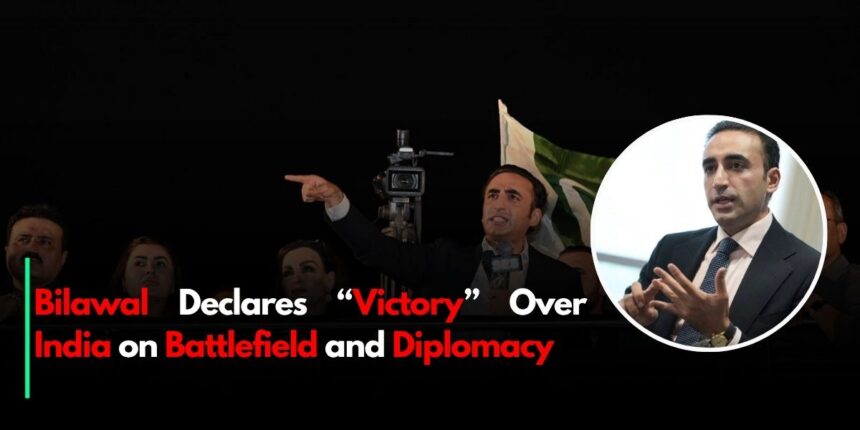Bilawal Bhutto-Zardari, Chairman of the Pakistan Peoples Party (PPP), gave a powerful speech when he got back to Karachi after a diplomatic trip to Europe and the U.S. He said that Pakistan not only stayed firm on the battlefield but also won on the diplomatic front against India.
Battlefield Bravado
Bilawal praised the work of Pakistani military during the recent cross-border battle in May when he spoke to PPP supporters at the airport. He said that Pakistan stepped in aggressively after India started bombing after the Pahalgam terror assault, proudly saying that “our armed forces inflicted a humiliating defeat” on an Indian military that was bigger.
He also pointed out that Pakistan shot down at least six Indian fighter jets, which India eventually admitted. Bilawal said that Pakistan fought back diplomatically against Indian stories that were spreading over the world, something that India couldn’t do militarily.
Diplomatic Attack
Bilawal stopped in Washington, London, Brussels and the United Nations. He said the group was able to change the world’s perspective of Kashmir from a bilateral issue to a global issue. He indicated Pakistan was able to convey its message of peace and international legal responsibilities and the media well received that message worldwide. He indicated India had little good press, and some of that was bad press.
Bilawal added that these events proved the diplomatic success, citing statements from U.S. President Trump, who volunteered to mediate, and praise from the commander of the U.S. military, who called Pakistan a “phenomenal partner in the war against terror.”
Tensions over water and warnings for the future
Bilawal also gave a clear warning: India must follow the Indus Waters Treaty or there would be further fighting. Bilawal added that Prime Minister Modi had threatened to use water as a political weapon, which could lead to another war.
A Display of National Pride
This story had a lot of different uses:
It showed pride in the country by showing Pakistan’s military and diplomatic officials as strong leaders.
It was meant to boost people’s spirits in the face of regional tensions.
It established the foundation for foreign policy involvement, showing that Pakistan was ready to protect its interests in both areas.
Bilawal wanted to show that Pakistan is not a passive state but an active actor in international events by focussing on both military achievements and diplomatic power.
Final Thoughts
Bilawal’s comments were meant to bring the country together and boost confidence. By claiming victories on two fronts—the battlefield and the world of critics in diplomacy—Pakistan puts itself in a position of power rather than as a victim.
Still, independent verification is still limited: greater openness and documentation will be needed to authenticate the downed jets and look at how other countries reacted. Also, talking about future conflicts over water rights could make tensions in the area worse.
Still, Bilawal’s message is clearly meant to reassure people in Pakistan that the country can handle problems head-on and to make the recent fight seem like a turning point in military, diplomatic, and domestic policy.










